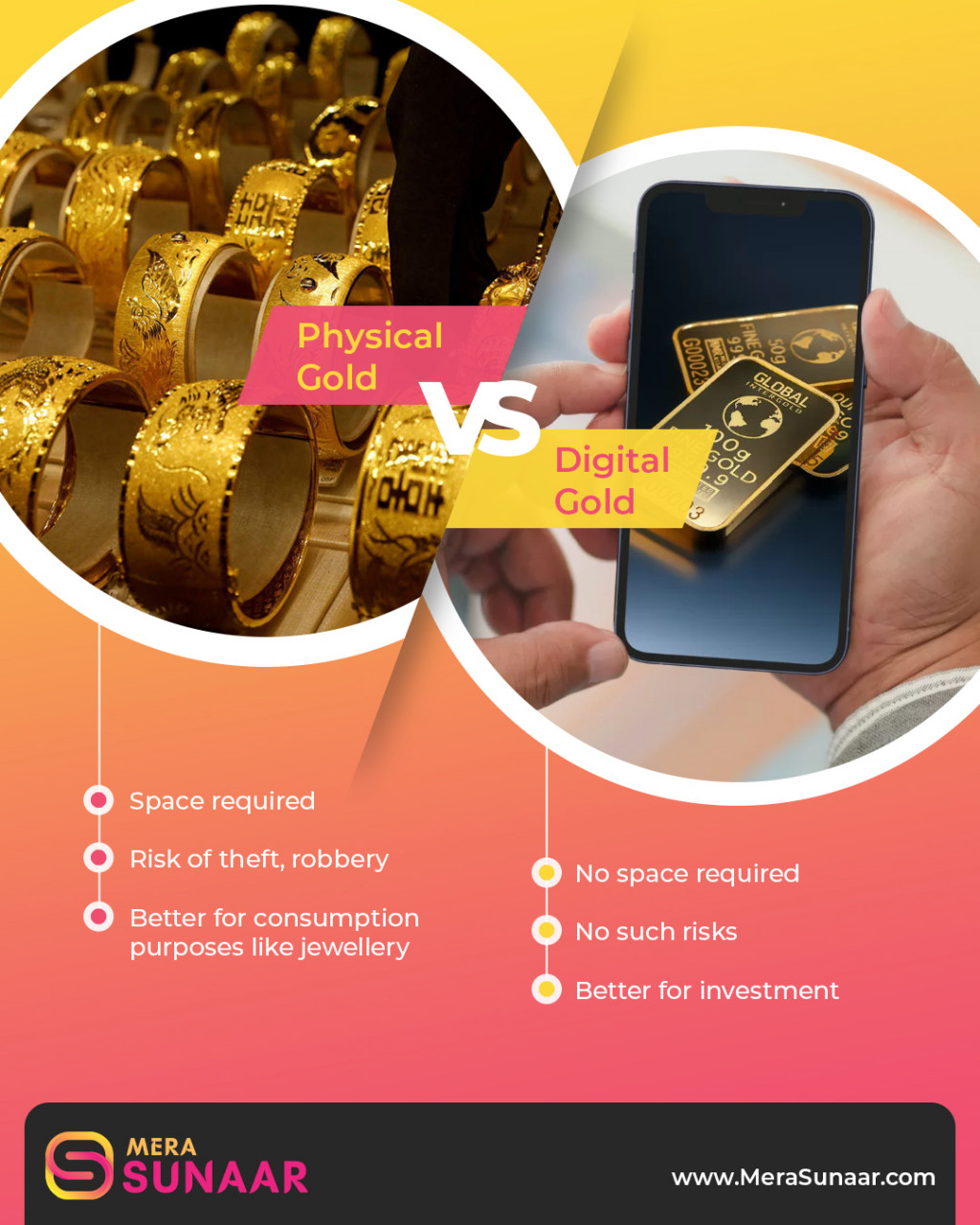Digital Gold vs. Physical Gold: Unveiling the Future of Precious Metal

Investing in gold has long been considered a reliable strategy for wealth preservation and diversification. However, the emergence of digital gold has introduced a new dimension to the age-old debate of digital assets versus physical ownership. In this article, we will explore the key differences and advantages between digital gold and physical gold, shedding light on their respective potentials in the ever-evolving investment landscape.
Digital Gold: The Rise of a Technological Innovation
Digital gold, also known as tokenized gold or gold-backed cryptocurrencies, has gained significant momentum in recent years. Leveraging blockchain technology, it offers investors a digitized representation of gold, enabling them to own fractional units of the precious metal without physical possession. This form of investment provides individuals with increased accessibility, enhanced liquidity, and reduced transaction costs compared to traditional physical gold.
Physical Gold: A Timeless Investment with Tangible Value
For centuries, physical gold has been a symbol of wealth and a safe haven asset during times of economic uncertainty. Owning physical gold entails acquiring tangible assets, such as gold bars, coins, or jewelry, which can be stored securely. Physical gold offers investors the comfort of direct ownership, allowing for a personal connection with the precious metal and providing a sense of security in times of market volatility.
Differences in Liquidity and Accessibility
Digital gold has transformed the landscape of gold investments by enhancing liquidity and accessibility. Unlike physical gold, which requires physical delivery or safekeeping, digital gold can be bought, sold, and traded instantly through online platforms, often 24/7. This ease of access allows investors to take advantage of market opportunities and respond swiftly to changing conditions, without the logistical constraints associated with physical gold.
Transaction Costs and Storage Considerations
When it comes to transaction costs, digital gold typically offers a more cost-effective solution. Traditional gold purchases involve expenses related to storage, insurance, and transportation. Digital gold eliminates these costs, as it operates on blockchain platforms, leveraging secure storage solutions and smart contracts. In contrast, physical gold requires appropriate storage facilities, often with associated fees, and may incur additional costs for insurance and transportation.
Risk and Security Factors
Physical gold ownership carries inherent risks, including the potential for theft, damage, or loss. Safeguarding physical gold requires secure storage solutions, such as bank vaults or personal safes, along with insurance coverage. Digital gold, on the other hand, benefits from the security measures provided by blockchain technology. Each digital gold token is typically backed by physical gold held in secure vaults, ensuring the asset's legitimacy and mitigating the risks associated with physical possession.
Market Dynamics and Volatility
Both digital gold and physical gold are subject to market dynamics and the volatility of gold prices. However, the ease of trading and instant liquidity offered by digital gold allows investors to react swiftly to market movements, capitalize on opportunities, and manage risk effectively. Physical gold, while historically considered a stable investment, may involve longer turnaround times for buying, selling, or converting into cash during volatile market conditions.
Conclusion
The rise of digital gold presents investors with a compelling alternative to physical gold, offering increased accessibility, enhanced liquidity, and reduced transaction costs. While physical gold continues to be a tangible and time-tested investment with its own merits, digital gold introduces a new dimension of convenience and flexibility. Ultimately, the choice between digital gold and physical gold depends on individual preferences, risk tolerance, and investment goals. As technology continues to evolve, the landscape of precious metal investments will witness further innovation, providing investors with a diverse range of options to navigate the ever-changing market dynamics.In what ways does the tangible nature of physical gold, such as gold bars and coins, contribute to its appeal as an investment compared to other forms of wealth storage or investment options?
Related Discussions
- 2
Which Precious Metal Is The Best Investment?
by PhoenixV 9 years ago
Which Precious Metal Is The Best Investment?Gold, silver or other?
- 3
Yield on Saving and Investments
by Ashok Goyal 13 years ago
I am new to the HubPages. I am writing here for the sake of starting a discussion in the forum. In my opinion return on savings is less but it ensures liquidity and security whereas liquidity could b locked in investments and it may involve risk factor also. Higher the risk ,higher the profit holds...
- 9
Would you invest in precious metals? Specifically gold?
by lmarsh1203 11 years ago
Would you invest in precious metals? Specifically gold?With the increase in inflation and decreasing value of the dollar, would you invest in precious metals?
- 20
Hey Evan, Greenspan Sold Out By Not Regulating!
by Gary Anderson 14 years ago
You mentioned in our discussion on another site that Alan Greenspan sold out. But really, he sold out by not regulating bubbles. You say he sold out by not having a gold standard. But a gold standard would cause credit to completely dry up. Some credit is necessary. And, BTW, the TULIP bubble was...
- 7
Stability, Strategy, and Strength: Inside the U.S.–Argentina Economic
by Sharlee 2 months ago
The U.S.–Argentina Deal: What It Is and Why It MattersNOTE --- Donald Trump has expressed full support for Argentine President Javier Milei and tied the continuation and expansion of the $20 billion arrangement to Milei staying in power. In Trump’s own words (reported by Financial Times and...
- 4
Is Silver Bullion Or Silver Coins A Good Investment Currently?
by PhoenixV 11 years ago
Is Silver Bullion Or Silver Coins A Good Investment Currently?Is buying silver a good idea? What price is a good price to buy silver? What is a good price to sell silver? What are some strategies you would recommend, when thinking about investing in silver?






